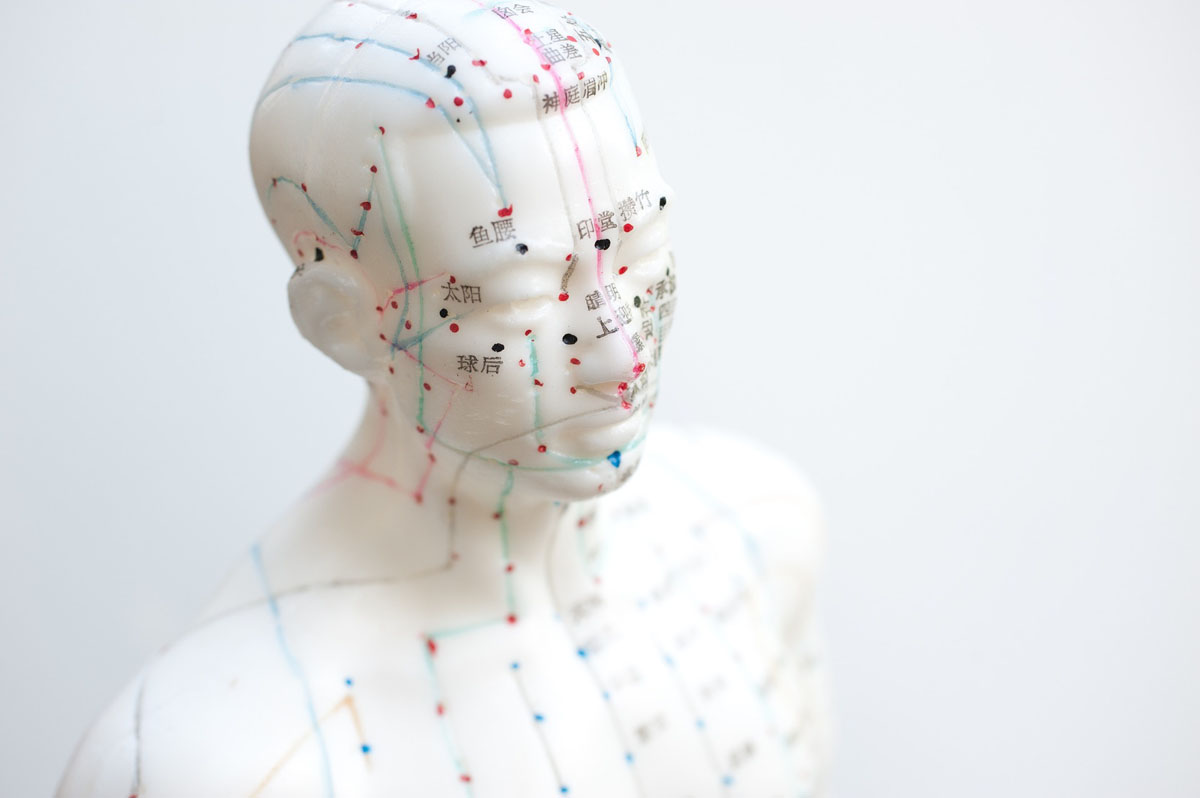- Integrative Health Group1502 Allen St
Springfield, MA 01118413-782-9800 - Acupuncture of Greater Hartford & Springfield35 Nod Road
Avon, Connecticut 06001860-836-1068 Tai Chi Links
-
Latest Articles:
- • 10 Family-Friendly Activities Perfect for Spring •
- • 3 Easy Spring Dinner Ideas for a Fresh and Flavorful Season •
- • 5 Tips to Boost Your Spring Wellness Routine •
Acupuncture and Tai Chi in Hartford CT, Springfield MA
Health Well News
Staying Healthy and Happy this Autumn
The cooler days and longer nights of autumn have transitioned from the bright, busy days of summer. The natural world is getting ready for the cold months ahead and our bodies are adapting to the changing seasons.
Traditional Chinese Medicine (TCM) tells us that we are all part of the natural world and its rhythms. As the harvest season settles in, you may find yourself looking inward, reflecting on your life and preparing for the winter in your own way.

In TCM, each season corresponds to a specific Organ System. For example, during the autumn, the Lungs are at their most active point and are susceptible to both positive and negative influences. The Lungs, often referred to as “the delicate protective organ” because of their direct contact with the environment, perform the important function of extracting Qi (“vital energy”) from the air we breathe.
Another important function of the Lungs is to produce Wei Qi. Wei Qi is similar to the Western concept of the immune system and protects the body against harmful external factors.
When the Lungs are strong and balanced, we’re generally able to stay healthy and avoid illness. However, if the Lungs are out of balance, we become more likely to suffer from conditions such as colds, flu, asthma, allergies and other respiratory concerns.
SUPPORT YOUR LUNGS THIS SEASON WITH THESE SELF-CARE TIPS:
WARM UP: Protect yourself against the wind and cold. Nourish your body by eating more warm, cooked foods.
COVER UP: Weather can change quickly this time of year. Layering clothing or having an extra sweater will help keep your body warm and at the right temperature in order to stay healthy. Have you ever noticed when you first start to catch a cold, you have a stiff neck followed by aches and pains and even fatigue? The back of your neck is vulnerable to Wind, and when your pores are open up, Wind can get into your body where it doesn’t belong thus causing your body to be more vulnerable to colds! Wearing a scarf can help prevent colds and keep you snug in the winter months.
FOCUS ON EMOTIONS: Try to let go of negative feelings such as grief and sadness. These can strongly affect your body’s overall balance in this season, and those to come.
BREATHE DEEP: Try breathing exercises daily to keep the Lungs healthy. I can recommend and teach you specific exercises and self-care techniques in order to keep you functioning optimally.
SEEK PREVENTIVE CARE: Schedule an appointment with me for a “seasonal tune-up” that is designed to strengthen your Wei Qi and help you maintain balance throughout the seasons to come.
Acupuncture to Stop Smoking
Smoking is a strong and complicated addiction. Quitting smoking is no small task and you will likely need lots of support in order to be successful. You need the best tools to help with the physical and emotional symptoms, and acupuncture is a great resource to help you succeed.
HERE ARE THE 6 THINGS YOU SHOULD KNOW ABOUT USING ACUPUNCTURE TO QUIT SMOKING.
Acupuncture is very effective to help stop smoking.
Acupuncture has been used to help combat addiction and curb cigarette cravings for a long time. Many people have had success and now research is supporting these claims.
In a recent study, “Alternative Smoking Cessation Aids: A Meta-analysis of Randomized Controlled Trials,” researchers gathered data from 14 different studies to see which alternative techniques helped patients stop smoking. The acupuncture studies examined 823 different patients. The researchers concluded that both acupuncture and hypnotherapy may help patients quit smoking. The scientific world is far from definitely recommending acupuncture for smoking cessation, but more and more research shows that it does help many people.
Acupuncture helps with smoking addiction in many ways. It stops jitters, curbs cravings, lessens irritability and restlessness, increases relaxation, and helps detoxify the body. It can also restore balance in your constitution and jumpstart the healing process.
There is a “stop smoking” acupuncture point.
There is a point called “Tim Mee,” which is used specifically to stop smoking. It’s located one finger’s width above your wrist crease, on the inside of your arm. It is used solely to help people stop smoking and it does this by altering the way cigarettes taste.
Will this point be enough? Of course not.
Smoking is a complicated addiction. Tim Mee is a powerful acupuncture point, but it must be used in conjunction with other points to combat cravings, rebalance your body and heal.
Acupuncture can reduce cravings, but it can’t change habits.
Physical cravings are only one aspect of cigarette addiction. Many times, the habit of smoking is harder to stop than the physical addiction. If smoking helps you cope during difficult emotional situations, not smoking can make you feel naked and vulnerable. If smoking is part of a daily ritual, not smoking can make your day feel “off.” All of this is normal and challenging to cope with.
It is recommended that people use all the support systems they have available. Get help from family and friends, join a support group or even exercise. The best way to quit this addiction is to find new, smoke-free activities.
Stopping a smoking addiction requires support—physically, emotionally, and socially.
There are simple acupressure techniques to cope with cravings.
Ear massage is one way you can cope with cravings at home. It releases endorphins and these chemicals are natural painkillers. It also stimulates acupuncture points which help balance Qi.
There are many ear massage techniques. You can place your thumbs in the widest upper part of your ears and massage in circular motions. You can massage the small inner crevices and the front of your ear where it attaches to your head. And you can massage your earlobes, with gentle pulls and circular motions.
Herbs can help with cravings.
There are many herbs that help with cravings, irritability, detoxification, and tissue repair. Make an appointment and we can discuss which ones would be best for you.
The Third Thursday in November is the Great American Smokeout.
The American Cancer Society has designated the third Thursday of November as the Great American Smokeout. This is a day to quit smoking—for good. If you have “thought” about quitting, the Great American Smokeout is a great day to actually do it.
Acupuncture and the Small Intestine
The small intestine is part of the gastrointestinal tract and up to 90 percent of the digestion and absorption of food occurs here. The small intestine’s main function is the absorption of minerals and nutrients from the food we ingest. It consists of three separate parts; the duodenum, the jejunum, and the ileum. The small intestine measures upwards of six to seven meters long and it has a surface area of over 200 meters. In the Traditional Chinese Medicinal system, the small intestine is much more than just its physical traits.

TCM pairs energetic meridians so that they form a complete circuit, to maintain a balance, there is always a yang and a yin meridian, which you may recognize as a black and white circular symbol. The small intestine meridian is paired with the heart meridian. Imbalances in the small intestine meridian can lead to problems such as abdominal pain, digestion issues, and also appetite problems like overeating or poor appetite. The small intestine meridian starts at the outer tip of the pinky finger and runs up the arm, over the scapula of the shoulder, continues up the neck, and ends in front of the ear. The meridian pathway allows for it to be useful in treating not just intestinal and abdominal issues, but also ailments like earaches, TMJ, shoulder, and neck pain.
The small intestine is the controller of the reception, transformation, and separation of solids and fluids. It receives food and fluids from the stomach and then transforms them by separating the pure from the impure. The pure essence is dispersed throughout the body and the impurities are flushed into the large intestine for eventual removal from the body.
The small intestine meridian is particularly sensitive to cold. Therefore eating lots of cold, raw foods can actually lead to problems in the small intestine. When excess cold invades the small intestine, there may be pain around the navel, watery diarrhea or loose stools, frequent clear urination, and loud gurgling sounds in the abdomen.
In TCM, the small intestine plays both a physical and a mental role. The mental role of the small intestine is to separate the clear thoughts from the turbid ones. This is another way the small intestine is connected to the heart in TCM. The heart houses the mind and is in charge of all of our mental health. Clear judgment depends on the ability of the small intestine to separate the pure from the impure. When there is dysfunction in the small intestine, then there may also be dysfunction in the mind.
While the small intestine may not seem as important as the heart or the kidneys, it is still an integral part of our body and as such, it should be taken care of equally as well. If you experience any abdominal or emotional issues, give us a call, and let’s schedule your first appointment! But most of all, take good care of your gastrointestinal health and your body will respond favorably.


